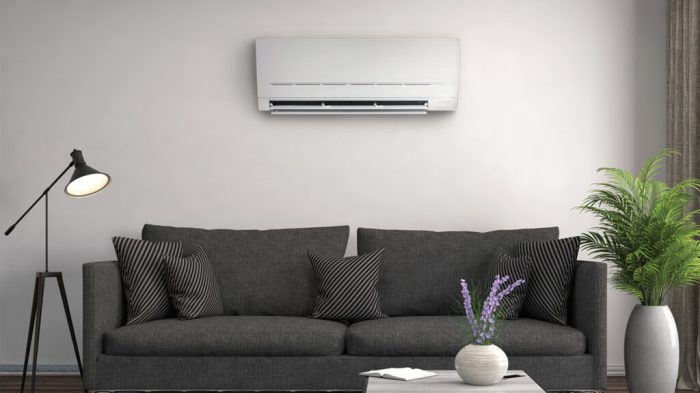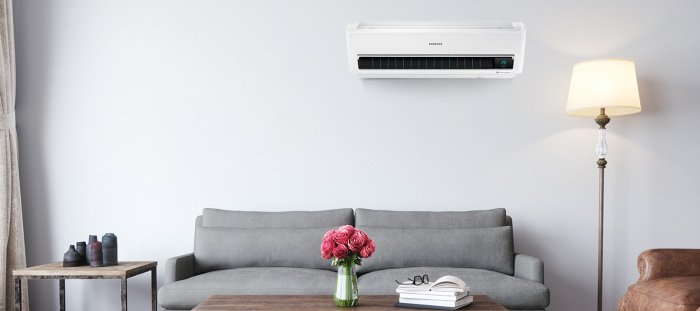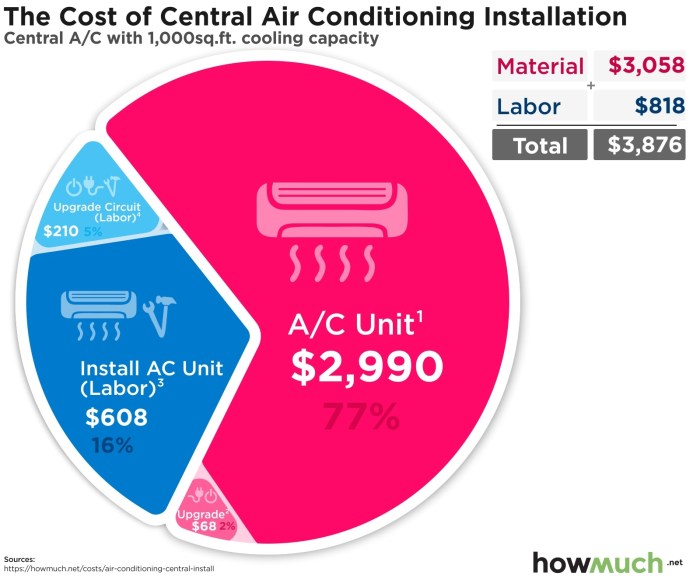How to Pick the Right AC Size for Your Room or Home
When it comes to choosing the perfect AC size for your room or home, several factors come into play. From square footage to insulation quality, each detail impacts the cooling efficiency. Let's dive into the essentials of finding the ideal AC size that suits your space.
Factors to Consider
When choosing the right AC size for your room or home, there are several key factors to take into consideration. These factors play a crucial role in determining the most suitable air conditioner for your space.
Square Footage of the Room or Home
The square footage of the room or home is a fundamental factor in determining the appropriate AC size. Larger rooms require more cooling power to effectively regulate the temperature, while smaller rooms can be adequately cooled with a smaller unit.
It is essential to measure the square footage accurately to ensure the AC unit's capacity matches the space's size.
Ceiling Height
The height of the ceiling in the room also influences the AC sizing. Rooms with higher ceilings tend to hold more air, requiring a larger AC unit to cool the space efficiently. It is important to consider the ceiling height when calculating the cooling capacity needed for the room.
Insulation Quality
The quality of insulation in the room or home has a significant impact on the AC size requirements. Well-insulated spaces can retain cool air more effectively, reducing the workload on the air conditioner. On the other hand, poorly insulated rooms may require a larger AC unit to compensate for the heat loss through walls, ceilings, and floors.
Windows and Doors
The number and size of windows and doors in the room play a crucial role in determining the AC size. Windows and doors are potential sources of heat gain in the room, especially if they are not properly sealed or insulated.
Rooms with large windows or multiple doors may require a larger AC unit to offset the heat coming in from these openings.
Calculating BTU Requirement
When it comes to picking the right AC size for your room or home, calculating the BTU (British Thermal Units) requirement is crucial. BTU helps determine the cooling capacity needed to effectively cool a space, considering factors like room size, sunlight exposure, and room usage.
Understanding BTU Calculation
To calculate the BTU requirement for your room, you can use a simple formula based on the size of the room:
BTU = Room Area (in square feet) x 25
Adjustments for Factors
Sunlight Exposure
If the room receives a lot of sunlight, you may need to increase the BTU requirement by 10% to 20%.
Room Usage
For kitchens or areas with high heat-generating appliances, consider adding 4,000 BTU to the calculated value.
Common BTU Requirements
- Small Room (100-300 sq ft): 6,000-10,000 BTU
- Medium Room (300-550 sq ft): 10,000-14,000 BTU
- Large Room (550-1,200 sq ft): 14,000-23,000 BTU
- Whole House (1,200+ sq ft): 23,000+ BTU
Types of AC Units

When it comes to selecting an air conditioning unit for your space, there are several types to consider. Each type has its own set of advantages and disadvantages, and choosing the right one depends on various factors, including the size of the room and your specific needs.
Window AC Units
Window AC units are a popular choice for smaller rooms or apartments. They are relatively easy to install and are more cost-effective compared to other types of AC units. However, they may not be suitable for larger rooms or spaces that require consistent cooling.
Portable AC Units
Portable AC units are versatile and can be moved from room to room as needed. They are ideal for cooling specific areas or rooms without the need for permanent installation. However, they may not be as efficient as window or split AC units, especially in larger spaces.
Split AC Units
Split AC units consist of two separate units – one indoor unit and one outdoor unit. They are suitable for larger rooms or spaces that require consistent cooling
Central AC Units
Central AC units are designed to cool an entire home or building through a system of ducts and vents. They are the most effective option for larger spaces and provide even cooling throughout the entire area. However, central AC units are more expensive to install and may require professional maintenance.Choosing the right type of AC unit for your room size is crucial in ensuring optimal cooling efficiency.
Consider factors such as the size of the room, insulation, and the layout of the space before making a decision. It's important to select an AC unit that is not only the right size but also the right type for your specific needs.
Consulting with Professionals

When it comes to selecting the right AC size for your room or home, there are times when seeking professional help can be beneficial. HVAC experts can provide valuable insights and recommendations based on their experience and knowledge in the field.
Benefits of Professional Assessment
- Accurate Sizing: HVAC professionals can accurately assess your cooling needs based on factors such as room size, insulation, and climate conditions. This ensures that you get an AC unit that is the right size for your space.
- Energy Efficiency: Properly sized AC units operate more efficiently, leading to lower energy bills and reduced environmental impact.
- Long-Term Savings: By avoiding common mistakes in AC sizing, you can prevent costly repairs or replacements down the line.
- Expert Advice: HVAC professionals can offer valuable advice on maintenance, operation, and other aspects of AC ownership to maximize performance and longevity.
Common Mistakes to Avoid
- Overestimating or Underestimating Cooling Needs: Without professional input, you may end up with an AC unit that is either too large or too small for your space, leading to inefficiency and discomfort.
- Ignoring Specific Room Factors: Factors like ceiling height, window size, and insulation levels can impact AC sizing, which professionals consider during assessment.
- DIY Guesswork: Guessing the AC size based on square footage alone can result in an improper fit, leading to wasted energy and reduced comfort.
Ensuring Optimal Cooling Efficiency
Consulting with HVAC professionals ensures that your AC unit is not only the right size but also installed and maintained properly for optimal cooling efficiency. Their expertise can help you make informed decisions and avoid costly mistakes in the long run.
Final Wrap-Up

Choosing the right AC size is crucial for maintaining a comfortable environment in your room or home. By considering factors like square footage, insulation, and type of AC unit, you can ensure optimal cooling performance. Make an informed decision to enjoy a refreshing atmosphere year-round.
Key Questions Answered
How do windows and doors affect AC sizing?
Windows and doors impact AC sizing by allowing heat to enter or escape. It's important to consider their size, material, and insulation quality to determine the right AC size for your room or home.
Why is ceiling height important in AC sizing?
Ceiling height affects the volume of air in a room, which in turn influences the cooling capacity needed. Higher ceilings require larger AC units to effectively cool the space.
When should I consult with a professional for AC sizing?
It's advisable to seek professional help for AC sizing when dealing with complex factors like room layout, unusual insulation, or specific cooling requirements. HVAC experts can provide tailored recommendations for your unique needs.




